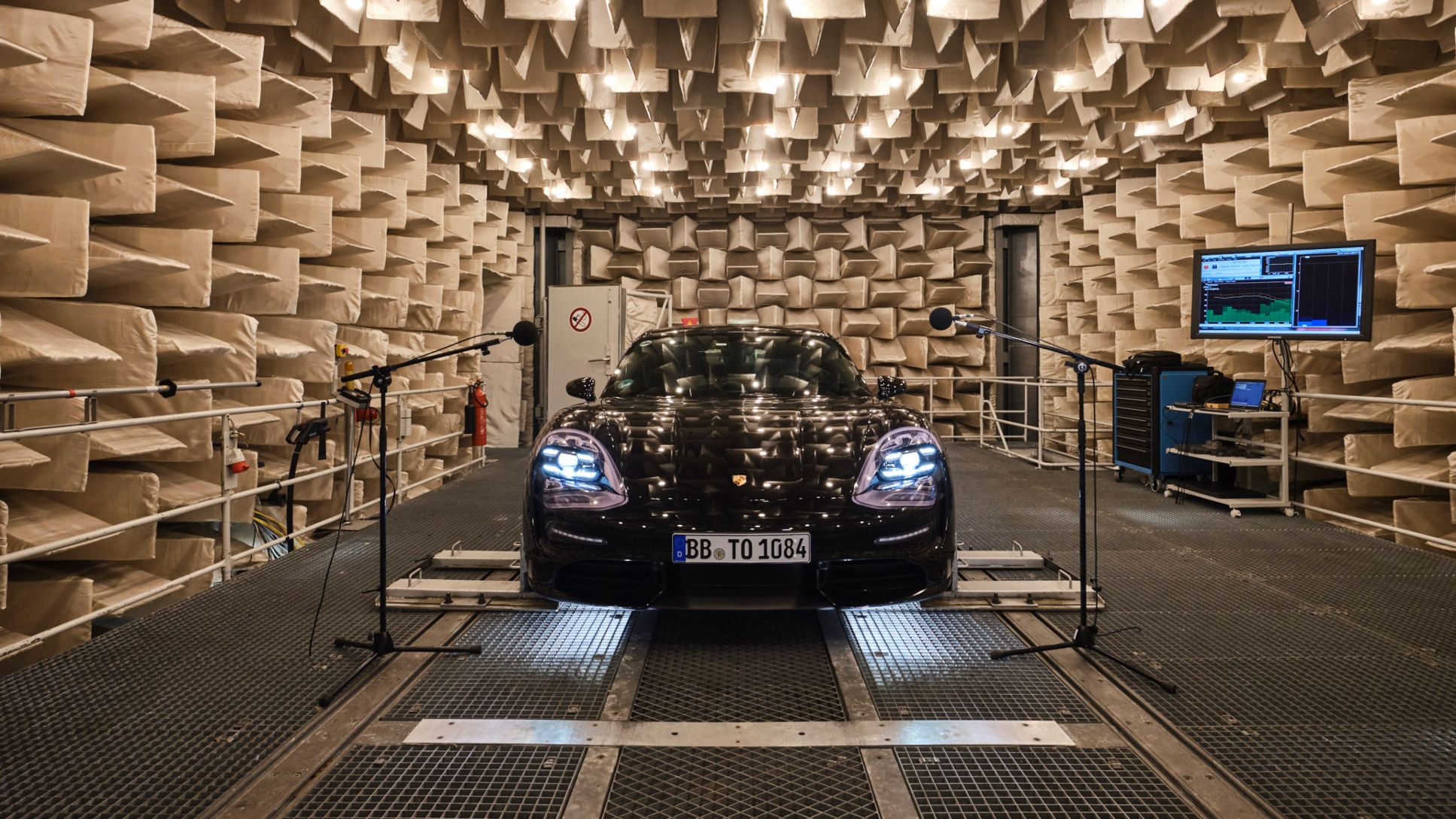Every fan knows the unmistakeable sound of a six-cylinder Porsche boxer engine. Powertrain sounds not only create an emotional connection with one’s car but they are also an important early warning system for traction conditions, for example. Electric cars also have their own sound. The Porsche Electric Sport Sound in the Taycan Turbo S (optional for the Taycan Turbo) is skilfully composed and tailored to the vehicle’s personality and vehicle status. What is more, all Taycan models also have a standard system to meet the legal requirements for pedestrian protection. This is harmoniously adapted to the Electric Sport Sound.
Hearing as an acoustic early warning system
Porsche already has experience with developing the sound of electric vehicles from the 919 Hybrid. The works drivers were only able to reach the limits of the multiple Le Mans winning car in the race simulator if the sound of the real engine matched what the car was doing. In the same way, drivers promptly perceive early information about driving conditions via their sense of hearing, which they can interpret intuitively: the characteristic hissing of the tyres provides information about the quality of the asphalt or how wet the road is. A change in the wind noise, for example, gives an indication of speed or crosswind. And the sound of the powertrain, engine and transmission characterises the power delivery and conveys identity-creating characteristics such as power or agility. The ear sends signals to the brain just as directly when the car's limit of traction is reached, as when drive or recuperation of power during deceleration is delivered.
The Porsche Electric Sport Sound makes the vehicle's own drive sound even more emotionally charged and richer with its innovative character both on the outside and inside. For this purpose, disturbing noises from the drive architecture are deliberately minimised and harmonious, emotive sounds matching what the car is doing are amplified. These are composed in such a way that a sound experience typical of Porsche is created: with a clear electrical statement but unquestionably the sound of a genuine Porsche. The driver can activate and deactivate the Electric Sport Sound by selecting the Sport Plus driving mode directly in the Drive menu of Porsche Communication Management (PCM) or via the configurable joker keys.
Acoustic warning required by the legislator
In contrast, the Acoustic Vehicle Alerting System (AVAS) at low speeds cannot be switched off. The installation of such a generator for warning noises in electric cars has been mandatory in the European Union (EU) since 1 July 2019. The EU regulation prescribes an Acoustic Vehicle Alerting System (AVAS) for the protection of other road users up to a speed of 20 km/h. A similar situation applies in China and Japan. The regulation defines highly detailed framework conditions on how an AVAS noise may and may not sound. This applies, for example, to the minimum and maximum volume as well as to certain noise components. The equivalent regulation in the USA even requires a warning sound when the vehicle is stationary and requires an increase in the noise level until 32 km/h is reached.
The Porsche engineers also adapted this sound so that it is as emotive, sporty and powerful as possible within the framework of the legal regulations. The AVAS is faded out above the legally required speed ranges up to about 50 km/h. When Electric Sport Sound is switched on, the AVAS sound and the emotive sports sound blend harmoniously with each other.
Additional content
Sports cars, redesigned with sustainability in mind. The first all-electric sports car, the Taycan, marks the beginning of a new era for Porsche as the company systematically expands its product range in the field of e-mobility. An overview.


